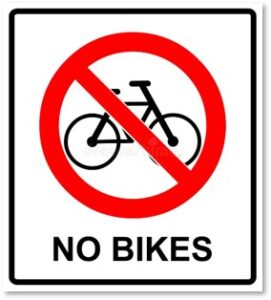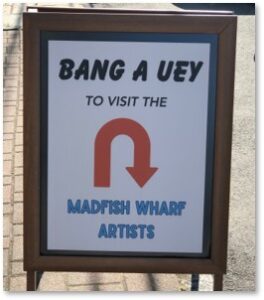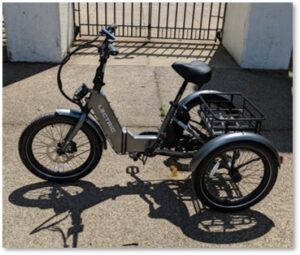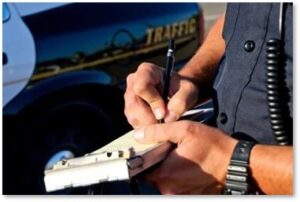Well, I knew the post I wrote about bicycle riders in Boston would kick up a ruckus and it certainly did. After Universal Hub picked it up, I scrolled down a long line of comments on the site formerly known as Twitter that pretty much fell into six categories.
Category 1: Outrage
 The biggest category by far, it came from riders who thought I was (A) crazy, (B) insulting, (C) out of touch, (D) prejudiced in favor of cars and drivers, ((E) a privileged Boomer, (F) an idiot. Fair enough; we’re all entitled to our opinions.
The biggest category by far, it came from riders who thought I was (A) crazy, (B) insulting, (C) out of touch, (D) prejudiced in favor of cars and drivers, ((E) a privileged Boomer, (F) an idiot. Fair enough; we’re all entitled to our opinions.
Many expressed outrage that I would dare to criticize riders for any reason and doing so must mean that I am biased against bicycle riders. I am not. I read too many of these comments to count, much less quote. Some were visual, some verbal, some video and some implied, while others were quite direct. One of the nicer ones said:
“You’re painting with too broad a brush. Turns out, some fraction of the populace are just jerks, and they use every mode of transport out there. You could write the same article about drivers, subway riders, and pedestrians.”
Indeed, I could.
Category 2: Whataboutism
But, but but, but, what about those cars? And those drivers? They’re so much worse! And more dangerous! How can I not know that?
Well, first of all, I never said that the city’s drivers were better than riders, or even good on the road in general. If they actually drove well, “Boston Driver” would not be a pejorative term. Yes, they also run stoplights and stop signs. Drivers do stupid, careless, and dangerous things and do them far too often. But they move along encased in big, heavy metal boxes that protect them somewhat from the results of their stupidity. Bicycle riders are a lot more exposed and, therefore, vulnerable.
 Also, I never said it didn’t apply to cars. My post focused on bicycle riders, not automobile drivers. The videos readers sent of Bostonians in cars running red lights disturb me, too.
Also, I never said it didn’t apply to cars. My post focused on bicycle riders, not automobile drivers. The videos readers sent of Bostonians in cars running red lights disturb me, too.
I have seen drivers pull out from the curb and cut across three lanes of oncoming traffic to make a U-turn. I use that as a teaching moment to describe the term “bang a Uey” to my tourists. They have never heard this local expression before.
A reader named Ryan took the opportunity to show me a common hand signal used by Boston drivers. Way to go, Ryan.
Category 3: Insult
Some commenters sent me photos of an electric tricycle that I might use to ride on Boston’s streets and get a taste of what it’s like on the other side of the discussion. Actually, folks, I do know how to ride a bicycle with two wheels and I’m not old enough to use a tricycle. But thanks for the suggestion.
 And for those who suggested I get off the bus and walk, I will simply say that I have led walking tours around the streets of Boston for 10 years. That means I have experience with street-level activity, along with all the danger and excitement that entails in Boston.
And for those who suggested I get off the bus and walk, I will simply say that I have led walking tours around the streets of Boston for 10 years. That means I have experience with street-level activity, along with all the danger and excitement that entails in Boston.
My favorite story comes from taking a tour group across Richmond Street in the North End on a night when traffic was bumper-to-bumper and the street was at a standstill. I had just walked across the intersection behind the last car, which was completely stopped, when the driver started to back up without checking the rearview mirror. Focused on the way ahead, I didn’t see it right away. If a man in my group had not pounded on the bumper, the driver would have run me over in reverse.
Category 4: Danger, Danger!
A fair number of folks detailed how they or family members were injured while riding a bicycle. I don’t doubt it and I don’t excuse it. I’m sorry it happened to you or someone you know. But drivers get angry when they see riders break the law because it makes it more likely that we might hit and injure you.
I have a friend who is an avid bicycle rider and who has been injured twice. She admits that she was running a stop sign both times. My friend has no memory of what happened after that the first time, because she didn’t wake up until EMTs were putting her in the ambulance. And that didn’t even happen in Boston.
She understands that skirting the traffic laws got her injured. But it also means there are two drivers out there who carry the burden of having injured someone even though they were obeying the law. Just sayin’.
Category 5: Safety
Some riders wrote to say that abiding by the law of the road is dangerous—more likely to get you killed or injured.
“In 2015 I was riding my bicycle in Cambridge (of all places). I stopped at a stop sign and was promptly rear-ended. The driver took off without hesitation. I’ve smartened up since then. ‘Flouting the rules’ is more out of necessity to arrive alive more than anything.”
I suppose it requires a balance of risks.
Category 4: Support
Yes, believe it or not, some people spoke out in support of my position. I offer one that would probably also rile up the outraged:
“YES!! This is 100% correct. It’s not that bikers behavior is so dangerous that it kills a lot of people, it is their entitlement demanding special treatment! So what if they barely ever cause injury or death to other people, their attitude is awful, that’s the problem!!”
And this:
“I was once riding my bicycle in Boston. A traffic light turned red so I stopped. Two other cyclists blew past me. It’s real.”
Addressing the Cause
An astute reader put a finger right on the cause of the problem: traffic laws are not enforced in Boston.
“Hit up BPD, they don’t do traffic enforcement and the anarchy you see on the road is the result. Motorists and cyclists have zero concern about the consequences of tickets.”
That is, of course, if they even get tickets at all. The Boston Police Department seems to have no concern for traffic violations of any kind, whether done on four wheels or two. I sincerely doubt anyone has ever gotten a ticket for jaywalking in the city’s history.
Cars run red lights and stop signs, park where signs clearly say “No Standing,” block the box at intersections so no one can get through, speed along residential streets, make illegal U-turns, and otherwise violate common-sense laws.
Bicycle riders, for whatever reason, do all the things I mentioned in my original post.
No Traffic Enforcement
 The BPD pays no attention. It seems as if they get to that chapter of the training manual and instructor says, “Pay no attention to Chapter 4. We don’t worry about traffic violations here. Let’s just move on to Chapter 5.”
The BPD pays no attention. It seems as if they get to that chapter of the training manual and instructor says, “Pay no attention to Chapter 4. We don’t worry about traffic violations here. Let’s just move on to Chapter 5.”
The situation won’t improve until anyone thinks three times about violating a traffic law because there will be consequences, as there are in other cities. I hope we can all agree about that.
